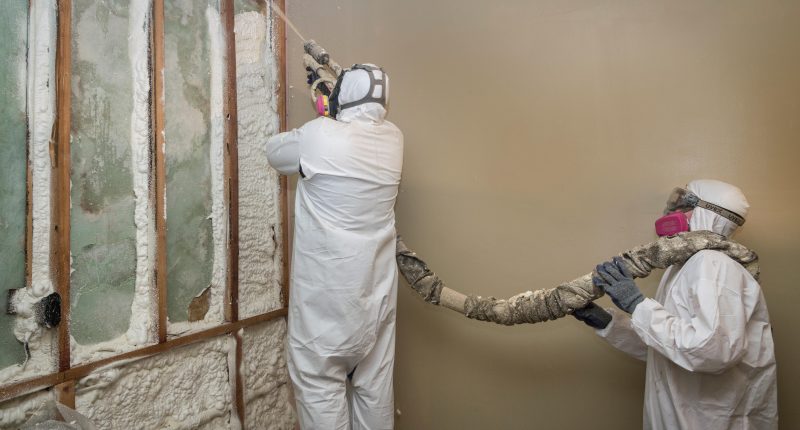A HOMEOWNER who was pushed into installing a “bill-slashing” heating measure which ended in disaster said “it seemed like a good idea.”
The government is no longer offering grants to homeowners who insulate their homes with spray foam.
Officials have now said there were ‘issues’ with foam but declined to elaborate.
Mortgage lenders have refused to lend to buyers looking to a buy a home with spray foam insulation, which can cause structural damage to properties.
The Health and Safety Executive said that the foam contains contains isocyanates which is linked to asthma. Persistent exposure can lead to incurable asthma.
Despite this, salesman have continued to sell the foam to unsuspecting buyers, many of whom have shelled out thousands of pounds to have the insulation fitted.
Diane Jennison, 78, from Devizes in Wiltshire, said she agreed to sign up after a “pushy” salesman knocked on her door.
She told the Telegraph: “He was very pushy. He kept ringing his ‘manager’ to get the price down.
“He kept saying the price he could get me ‘was only for today’. I couldn’t think of anybody to ask. So at the time, it seemed like a good idea.”
Ms Jennison paid out £2,500 to Airtech Insulation to have the foam fitted in her home.
Most read in Money
Shortly after the foam was fitted a second sales man cold called her, offering to spray the roof to stop moss growing on it.
The man who sprayed the roof was the same man who fitted the foam insulation, which caused Ms Jennison to be concerned.
After watching a television programme which revealed the danger associated with foam insulation, she visited a local estate agent.
They advised to her to have it removed as soon as possible. In total she paid out £7,500 on the venture.
Airtech Insulation ceased trading last Christmas according to information on Companies House.
Claims firm Hydrogard Legal Services has been helping customers recover the money they spent on foam insulation services.
Chris Brown, a director at the firm, said: “We know people who have spent upwards of £15,000. One company charged £76,000
down in Devon. Older, vulnerable customers tend to end up spending the most.”
Mr Brown said many spray foam insulation firms have now ceased trading.
He said some of the people behind the firms appeared to be cashing in on removing it.
Low-income and vulnerable families can get help improving the energy-efficiency of their homes through a Government scheme.
The Energy Company Obligation (ECO) is designed to tackle fuel poverty and reduce carbon emissions in the UK.
Fuel poverty relates to households who need to spend a high proportion of their income to keep their property at a “reasonable temperature”.
How to cut your energy bills
Here’s a couple of ways to get money off your energy bills:
The Warm Home Discount is applied every winter between October and the following March.
The £150 is for those on the lowest incomes and designed to cover the additional costs of heating over the colder months.
You don’t have to apply if you live in England or Wales and qualify, but some households in Scotland do.
You’ll also have to be in receipt of a number of benefits including Universal Credit, Income Support and Pension Credit.
Check if you’re eligible for the Household Support Fund too.
It’s available to households in England and usually those on a low income or benefits qualify.
You’ll need to apply through your council so you should contact them to see if you’re eligible for any help.
Under the ECO scheme, suppliers have a legal obligation to implement energy-saving measures in your home.
Help is offered on a case-by-case basis, but it can mean having a new boiler fitted, or loft or cavity wall insulation put in, often for free.









